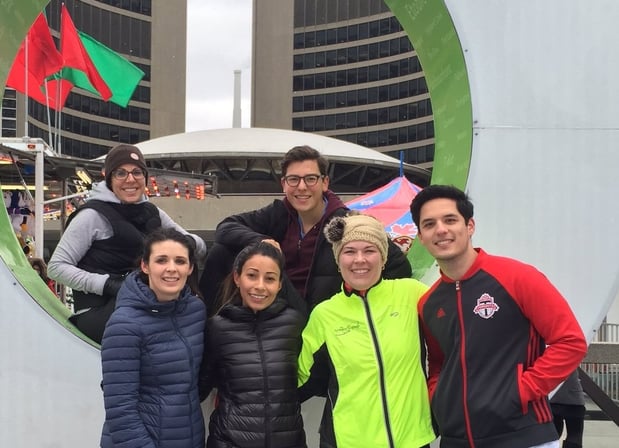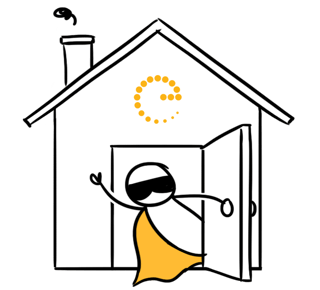
As a company that is committed to not only teaching but applying a human-centered approach in everything that we do, having empathy—that ability to understand someone else’s condition from their point of view—is essential. We know that if we want to serve each other, our customers and our community in a human-centered way, we have to first understand what they’re going through.
But here’s the thing. Today’s world is cluttered with a near-constant stream of information and noise, of messages pinging us and sensational headlines blaring at us, of ambitious to-do lists and exciting new initiatives. Through it all, it can be a challenge just to find a moment to stop and think. The question is, if our own minds aren’t clear and calm, then how will we find the mental space for someone else?
This year, our People Ops team instituted a bi-weekly lunch & learn program focused on mindfulness to give us some strategies for recognizing and decluttering what’s going on in our heads. By helping us get more intentional about what we do, these mindfulness practices are also allowing us to get outside of our own heads so we can continue to keep others top of mind.
For this behind-the-scenes-at-ExperiencePoint article, we picked the brains of several people who took part in the initiative: Carla Fernandes, People Ops Generalist, who spearheaded the endeavor; Simer Toor, Financial Operations Analyst, who was intrigued by the idea of using the power of your mind to be better in your job; and Joe Di Noto, Marketing Coordinator, who saw it as an opportunity to get a little extra food for thought along with his lunch.
Here’s what they shared with us about how the initiative got off the ground, what the experience has been like and how it has connected to other people and business goals within our organization.
Tell us a little bit about how this initiative came about.
Carla: I work alongside our Director of Operations, Romina Farrell, and one of our goals on the people operations side is to always have happy, healthy people. And so one endeavor we wanted to focus on this year is mindfulness.
We also did a “One Brave Night” event in May of last year around mental health awareness—where we stayed up all night to raise money for CAMH, the Centre for Addiction and Mental Health—and that had tied into the concept of mindfulness as well.
We did some research, and that’s how we came across this program called Search Inside Yourself. It was created by Chade-Meng Tan inside Google. After seeing the success rate that they had with this program and how it’s helped their people be more mindful, we thought we’d give it a shot.
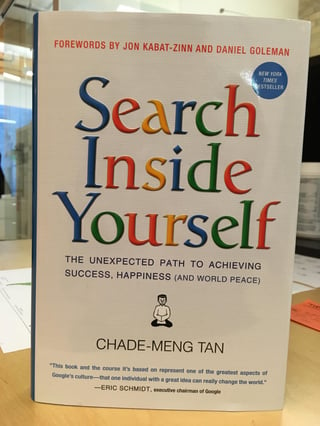
Why was it important to focus on mindfulness?
Carla: At ExperiencePoint, we don’t use “I”—we really do act as a team—and this course further reinforced how important it is to work together, to understand each other, to have difficult conversations. Those conversations can be hard, but that’s what creates change and brings the creativity to light. If everyone thought the same way, we wouldn’t have that. So we really encourage doing that in a healthy way, and part of this course was teaching us how to have those difficult conversations and not feel bad about having them. You’re understanding yourself and also the other person’s point of view.
Simer: I have to admit, when I first heard about it, I thought it was some hippy-dippy kind of thing! But what was really interesting is that they didn’t just go into the practical side of things and how to apply mindfulness; they also addressed the science, with studies showing that it actually helps with things like empathy, your mental health and leadership. I found it very interesting to learn about the power of the mind and how you can use it to influence certain things, be better at your job and have greater empathy for other people.
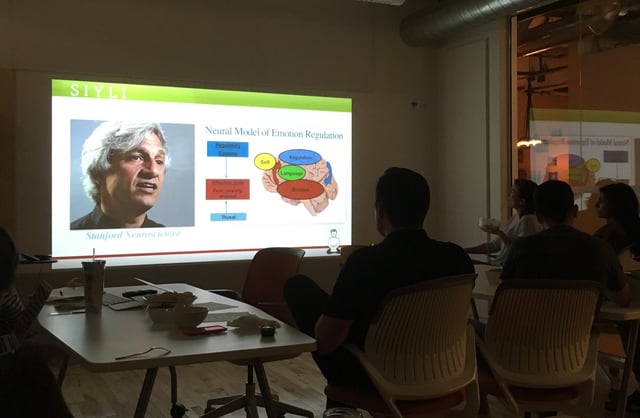
Carla: I think people had different motivations for participating, but one thing we were thinking about is that we’re growing as a team, and there are a lot of exciting projects going on. In our experience, for us to give our best, we have to find the right balance of work, family and personal life. So we wanted to give people the tools to recognize in themselves how to find that balance.
It seems like mindfulness in general has a clear connection to ExperiencePoint’s mission and approach.
Simer: The philosophies definitely overlap with how we approach innovation and change.
Carla: Everything we do is indirectly related to it. We’re constantly having to understand people and what their potential barriers are, just as that’s part of successful innovation and change. Also, in many of the sessions, there would be video-guided exercises that you had to work on with those around you, and they would would really get you thinking outside the box, which is very similar to what we do in our programs.
Joe: It’s those kinds of conversations that force you to look deep inside of yourself. There were a couple of exercises where you had to think about your weaknesses or what you’re good at, and share it with your partner or group. It was cool way to learn about yourself as well as your co-workers.
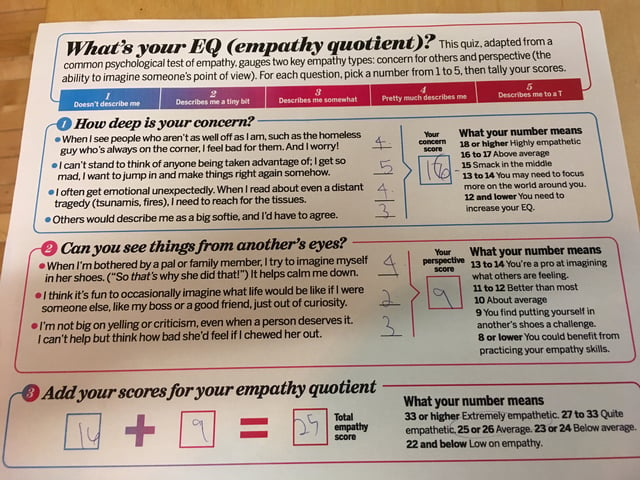
What was the process like getting the program off the ground?
Carla: Like any program, you want to do it yourself first to make sure it’s worthwhile, so Romina and I tested out a few of the “Search Inside Yourself” videos and decided that we did want to go ahead with it. It’s a free online program consisting of seven different areas of mindfulness and emotional intelligence, so we planned seven lunch & learn sessions around those lessons.
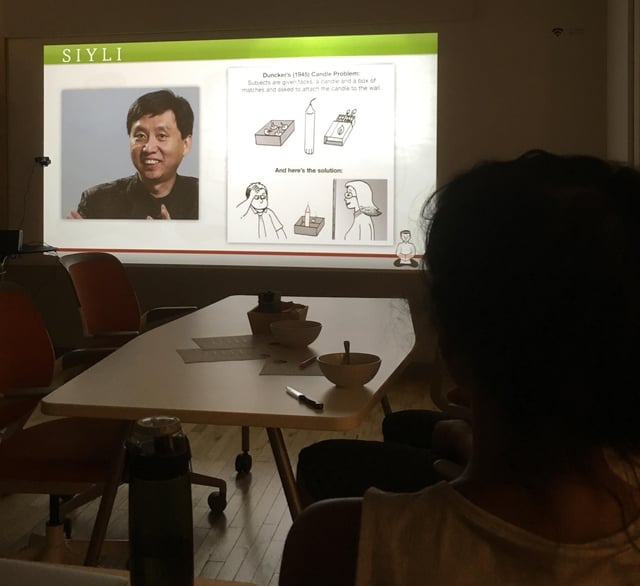
Then we connected with our creative team, because any time we roll anything out, we want to make sure we do more than just send out an email. We created a marquis, like a movie theater advertisement, and put that in our kitchen area, which is where everyone tends to gather and socialize. Every other week, the marquis announced what video would be playing. We also put a Tazo Tea “Zen” teabag on everyone’s desk along with a flyer about the program and where to get more information. So that got people talking and generated some excitement.
What did the program itself entail?
Carla: The sessions were held every other Friday at noon in our “Garage.” People were encouraged to bring their lunch, and we all watched the videos together. I also created handouts to go along with the sessions. There was a self-reflection sheet for people to jot down their key takeaways, as well as other resources, like an empathy self-assessment and a tip sheet to keep at your desk on how to practice mindfulness at work.
.jpg?width=640&name=photo%20(1).jpg)
At the beginning of each session, we revisited the previous video to talk about how the last class tied to this one, and we encouraged people to share their experiences, challenges and tips from applying the concepts over the last few weeks. And then afterwards, I’d send out the link to the video along with a summary of that session in case you missed it or wanted to watch the video again.
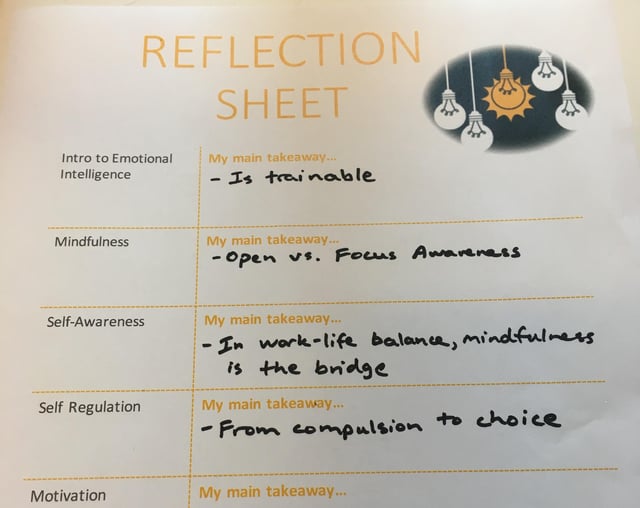
Joe: I couldn’t go to all of the sessions, but the fact that it was at lunch made it easy to attend when I was available. I was going to eat lunch at that time anyway, so why not join and learn something new and thought provoking?
How did participating in this program impact you and your work?
Simer: Our values are based around empathy and putting yourself in other people's shoes. So one of my main take aways was learning how to how to empathize with people differently, and part of that is being mindful and actively listening—putting yourself in the present moment so you can listen and respond. It was very fitting that our values are very similar to what we learned in the series. All our values start with “we” instead of “I,” and the work we do is very empathy-based in terms of leadership and training, so I feel like those exercises helped me empathize with people who are different from me and have different points of view.
And while empathy has always been there—for example, in accounting right now, we’re looking at ways to make the payment process easier on our customers—in the past we might try experimenting and seeing how something works. But I feel like a lot of future projects might follow a process of “let’s experience this ourselves first, then pilot it, and then roll it out more broadly.”
Carla: It also helps us move away from a transactional to a more transformational focus. How do we bring value to everything that we do versus just doing it.
Now that the seven sessions are over, what’s next? Where do you take it from here?
Carla: One thing we’ve learned is that we don’t want to focus on something once and then forget about it. We’re still working to keep this top of mind going forward. Right now, we have a wellness coach coming into the office every Friday, and we work out together as a team. She sends us weekly mindfulness tips and incorporates the concepts into what she’s doing with us.
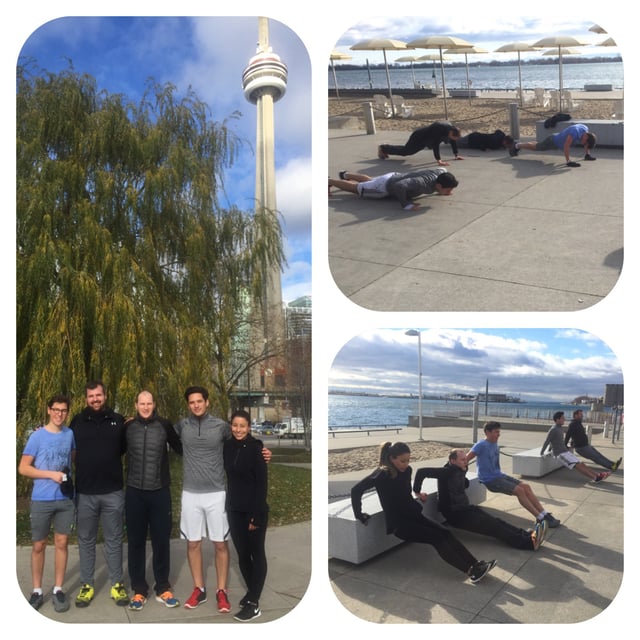
We also have a Muse headband that is available to any employee. You plug it in, and it connects with an app on your phone and teaches you how to meditate. And we’ve gotten feedback about what kinds of wellness activities people want to see going forward, so we’ll continue to build on this as well as continuing One Brave Night and other corporate social responsibility efforts.
Any other thoughts you want to share with our readers?
Carla: The “family feel” of ExperiencePoint is very important to us. Our team grew quite significantly in 2016, so these programs are a great way to make sure we keep that and that people get to know one another even as we grow.
Simer: Yes, and we have a lot of cross-functional teams, so having that chemistry goes a long way. [ExperiencePoint’s founders] James and Greg have done a great job laying the groundwork on ExperiencePoint’s values, and programs like this really help perpetuate those values and make sure we’re keeping aligned with them.
Joe: We all have a lot going on and we’re busy, so being able to take this time out on a Friday for that introspective look was important.
Simer: And going through that whole journey together with our co-workers was really great.
